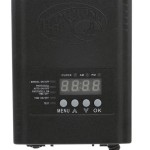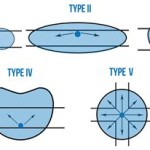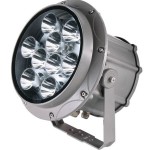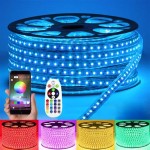Essential Aspects of Commercial Outdoor Sign Lighting
Illuminated commercial outdoor signs are a crucial element of any business's marketing strategy. They attract attention, convey important information, and create a positive brand image. To ensure your sign stands out and effectively fulfills its purpose, it's essential to consider the following key aspects of commercial outdoor sign lighting:
1. Type of Lighting
There are two primary types of lighting used for commercial outdoor signs: incandescent and LED. Incandescent bulbs emit a warm, inviting light but have a shorter lifespan and consume more energy. LEDs, on the other hand, provide bright, energy-efficient illumination and last significantly longer. LEDs are the preferred choice for most outdoor signs due to their durability and cost-effectiveness.
2. Brightness and Coverage
The brightness of your sign lighting should be sufficient to attract attention from a distance, but not so bright as to be overwhelming. The coverage of the lighting should be even across the entire sign, ensuring that all elements are clearly visible. Use reflectors or diffusers to optimize light distribution and minimize glare.
3. Color Temperature
The color temperature of your sign lighting refers to the hue of the light emitted. Warm white light (2700K-3000K) creates a welcoming and inviting atmosphere, while cool white light (4000K-5000K) is more energizing and stimulating. Choose a color temperature that complements your brand image and the desired effect.
4. Lighting Placement
The placement of your sign lighting is crucial for achieving the desired impact. Front-lit signs have the light source placed behind the sign, casting light forward. Back-lit signs have the light source behind the sign, illuminating the translucent sign material from within. Edge-lit signs use LEDs placed around the edges of the sign, creating a halo effect. Choose the lighting placement that best suits the design and location of your sign.
5. Energy Efficiency
Commercial outdoor sign lighting can consume significant energy, so it's essential to consider energy efficiency. Opt for LED lighting, which consumes up to 80% less energy than incandescent bulbs. Install motion sensors or timers to turn off the lighting when not needed, further reducing energy consumption.
6. Maintenance and Repair
Regular maintenance and repair are necessary to ensure your commercial outdoor sign lighting remains functional and visually appealing. Clean the fixtures, replace burned-out bulbs, and inspect the wiring regularly. Perform routine inspections during extreme weather conditions to prevent damage. Consider investing in a lighting maintenance plan to ensure ongoing performance and longevity.
Conclusion
Illuminated commercial outdoor signs are a powerful marketing tool that can enhance your business's visibility, convey important messages, and create a strong brand identity. By carefully considering the essential aspects of outdoor sign lighting, including type, brightness, color temperature, placement, energy efficiency, and maintenance, you can create a sign that effectively attracts attention, communicates your message, and leaves a lasting impression on your target audience.

Commercial Outdoor Led Sign Light Fixtures Signage Lighting

Commercial Outdoor Led Sign Light Fixtures Signage Lighting

Outdoor Sign Lighting Techniques Company Projects Premier

Commercial Grade Sign Lights U S Made

Commercial Outdoor Lighting For Your Kansas City Business

Outdoor Architectural Led Commercial Sign Light Alcon Lighting 31025

Led Signage Lighting How To Light Signs With Leds

Commercial Outdoor Lighting Specialties

Led Outdoor Sign Lighting Fixtures Commercial

Outdoor Sign Lights Spotted Atop Hillbilly Harley Inspiration Barn Light Electric
Related Posts







